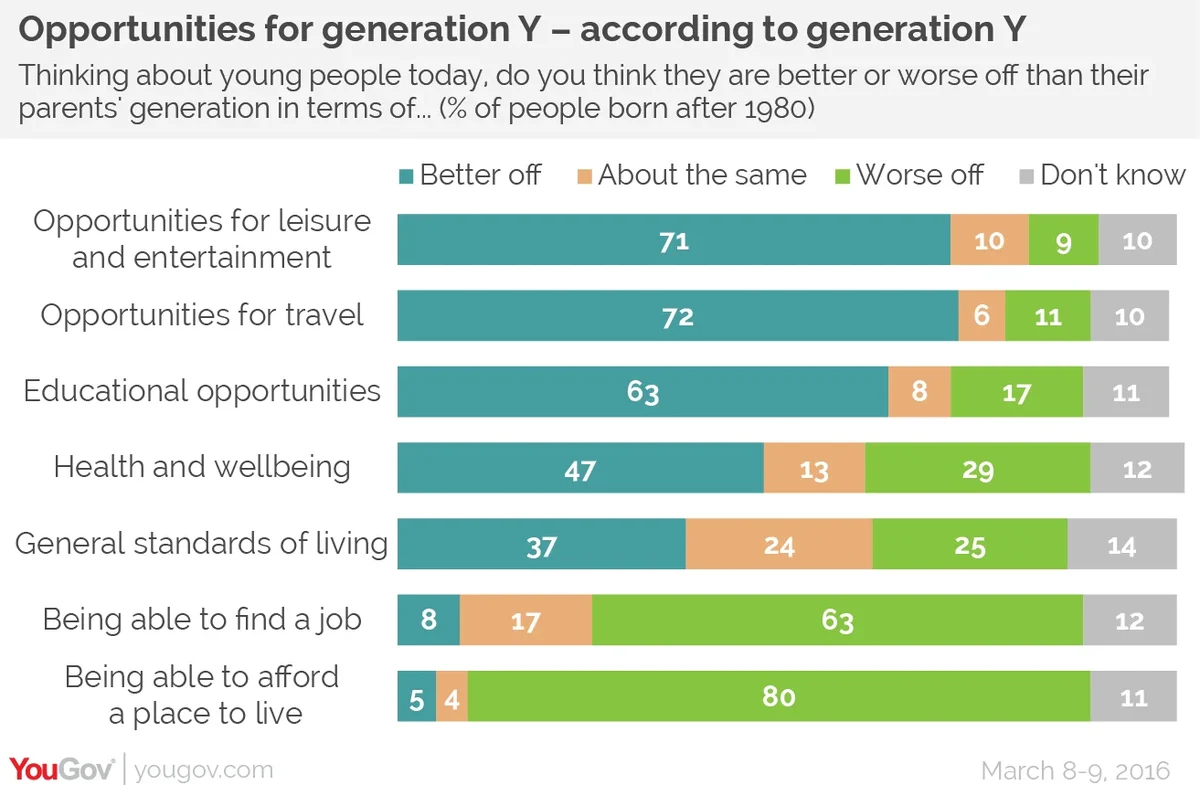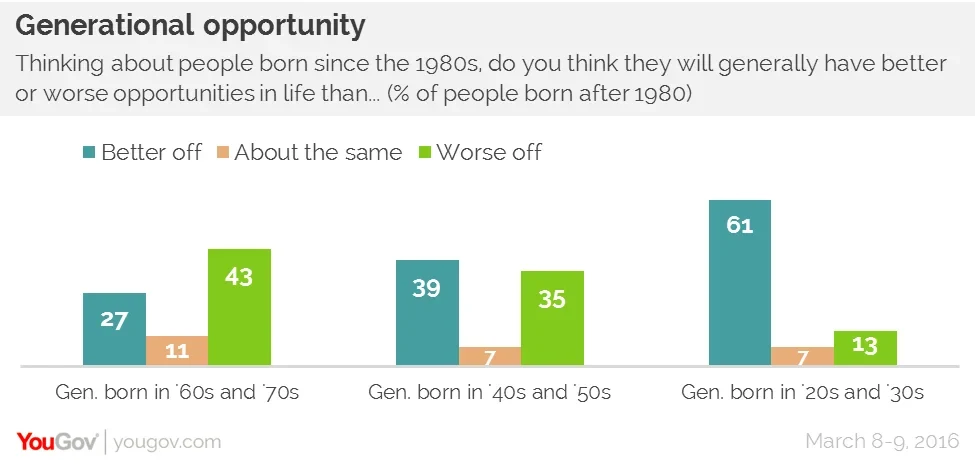Apart from on jobs and housing, young people tend to say they are better off than their parents’ generation – and will generally do no worse than baby boomers
According to a new report 18-29 year olds in Britain are earning less compared to the national average than most people of their age have done since 1980. British 25-29 year olds in 1999, for example, earned 15% more than the national average, however the same age group today earn 4% more – and in other European countries and the US there is often a greater or more consistent downward trend. Meanwhile earnings for over 60s relative to the average have increased across the board. According to an analysis by the IFS, British pensioners have had more money than people in work since 2011.
Inequalities aside, today's young people (often dubbed 'Generation Y') have more disposable income in real terms than former generations, and improvements in other areas of life complicate the idea that Generation Y has been robbed.
New YouGov research splits out the key components of a happy life and asks people how they think young people are faring on each measure compared to their parents. On two of the most important economic factors, housing and being able to find a job, there is a clear consensus that Generation Y have it hard – 78% and 63% respectively say they are worse off in these respects than their parents.
But on the other five measure most people – including Generation Y itself – think young people are better off or as well off as their parents.

On opportunities for travel, leisure and education majorites of all age groups say today's young people are better off than their parents' generation. On health and wellbeing and living standards, the largest group of Generation Yers say they will be better off (47% and 37% respectively), but 13% and 24% respectively say they will only be as well off.
Taking all aspects of opportunity as one, British people in general tend to say young people today will be worse off than those born in the '60s and '70s (sometimes called 'Generation X') – 41% say they will be worse off, 28% better off and 18% the same. The response is roughly the same among people in Generation Y (43% worse off, 27% better off and 11% the same).
Compared to Generation X's parents, the post-war generation or 'baby boomers', there is a tendency for Generation Y to think they will be no worse off (39% better off, 7% about the same and 35% worse off). And then looking back even further to the pre-war generation there is little doubt those born since 1980 are doing well in comparison.

Compared to average incomes, British house prices are the third highest out of 19 of the world's main economies, and they have soared since the 1990s, making British pessimism about the prospects of young people to buy their own houses understandable. Doubt in Generation Y's job opportunities is more curious, however – the youth employment rate in Britain is now at its highest level since 2004, and is higher than during most of the '90s. But the perception may come back to inequality: a report in 2015 found that young people were nearly three times more likely than the rest of the population to be unemployed, the largest gap since 1992.
PA image










